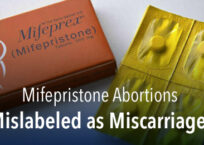
Written by Julie Tisdale
This January marked the 48th anniversary of the Roe v. Wade decision that legalized abortion across America. And recently, President Joe Biden rescinded the Mexico City Policy, which bans U.S. foreign aid to organizations that provide or promote abortion. Both serve as grim reminders of the millions of unborn children whose lives have been aborted – currently an estimated 44 million worldwide each year, with an annual average of more than 1.3 million in the U.S. since 1973.
The Mexico City Policy was first introduced by Ronald Reagan and prohibits federal funding to NGOs (non-governmental organizations) that provide abortions or abortion counseling, refer women for abortions, or advocate for expansion of abortion rights. Unfortunately, like many policies related to abortion, the Mexico City Policy has become highly partisan. Since its introduction in 1985, every Republican administration has upheld it, while every Democratic administration has rescinded it. It’s become one of the more predictable presidential actions anytime control of the White House shifts from one party to the other. President Biden’s action, then, is highly disappointing, but not surprising.
The Mexico City Policy matters because America, with our Judeo-Christian tradition, should be one of the world’s staunchest defenders of the vulnerable, and few people are more vulnerable than unmarried women and unborn children in many developing nations. By withholding federal dollars from NGOs that perform or promote abortion, we ensure that U.S. taxpayers aren’t paying for practices that take advantage of and abuse women, and that many of us find abhorrent. But we also send a message about our values, that we believe all life is important, no matter how marginalized. We affirm that all children are valuable because they are made in the image of God.
As people of faith who care about these issues, we should be vocal in our objection to the lifting of the Mexico City Policy and the use of our tax dollars to fund abortions around the globe. We should continue to advocate to our elected officials for the protection of vulnerable women and children. We should keep a close eye on the actions of the Biden administration and the 117th Congress, who are expected to make other moves to lift restrictions on abortion domestically.
We should also back up our advocacy with other types of support. Vulnerable women consider abortion for a variety of reasons. They often lack the resources – money, jobs, housing, family and community support – that they need to parent well. Many face social stigmas associated with pregnancy outside of marriage. Sometimes there are serious health concerns that women feel unable to face. Too many women have been victims of sexual violence. All of those situations call for compassion, not condemnation.
Internationally, there are ministries working in many parts of the world to address these issues. If we’re going to tell women that they should choose life for their babies, then we also need to help them in the right way to make that choice. We can do that by supporting organizations like Food for the Hungry that provides education and job training, community development, and basic health care. We can do that through sponsorship programs like Compassion International that provides schooling for kids and food assistance to families. We can do that through working with groups like Potter’s House Association that addresses poverty’s root causes and helps to empower poor families in the developing world. There are many groups doing good work, and supporting them is a way we can show love in very practical ways to our neighbors around the world.
Domestically, we should also support pregnancy centers and homes for unwed mothers that help moms facing unplanned pregnancies… We should offer practical help with things like diapers and childcare to struggling moms in our community, either through our churches or through organizations like Safe Families for Children. We should consider adoption ourselves or support families in our churches who are adopting, providing homes for children whose parents chose life but are unable to parent. And, addressing the heart of this situation for many, we need to support abstinence education that teaches that the wisest and healthiest choice is to abstain from sexual activity outside of marriage.
And of course we should pray—for elected officials here and abroad, for organizations working with vulnerable and marginalized communities, for families in poverty, and for women facing unplanned pregnancies. We know that God cares about all women, and men, and children. As Christians, then, we should advocate for policy change, but we must also work to provide the support that women need to help them make a choice for life.
This article was originally published by NC Family Policy Council.

























